Abstract
The mortality experience of an isolated Indian population in the Sioux Lookout Zone of northwestern Ontario from 1972 through 1981 is reviewed and compared with that of the Canadian population. Standardized mortality ratios for major categories of causes computed showed excessive risks in most conditions. Notable exceptions included circulatory diseases and neoplasms. Injuries and poisonings accounted for more than one-third of deaths. The proportionate mortality and age-specific mortality rates were considerably higher in all age groups in the Sioux Lookout Zone than in the whole of Canada. Excessive risks were found in almost all categories of accidental and violent deaths except motor vehicle accidents and accidental falls. Local conditions that contributed to the pattern observed are discussed. More than 90 percent of deaths from accidents and violence occurred before the medical care system was involved, highlighting the need for primary preventive strategies in reducing mortality due to these causes. While the infant mortality rate declined, pneumonia, gastroenteritis, and meningitis still accounted for 28 percent of infant deaths in the decade. Even with sudden infant death syndrome excluded, about 25 percent of infant deaths still occurred at home. Some features of the pattern of mortality reported here are also observed in other North American Indian groups undergoing the stresses of social change.
Full text
PDF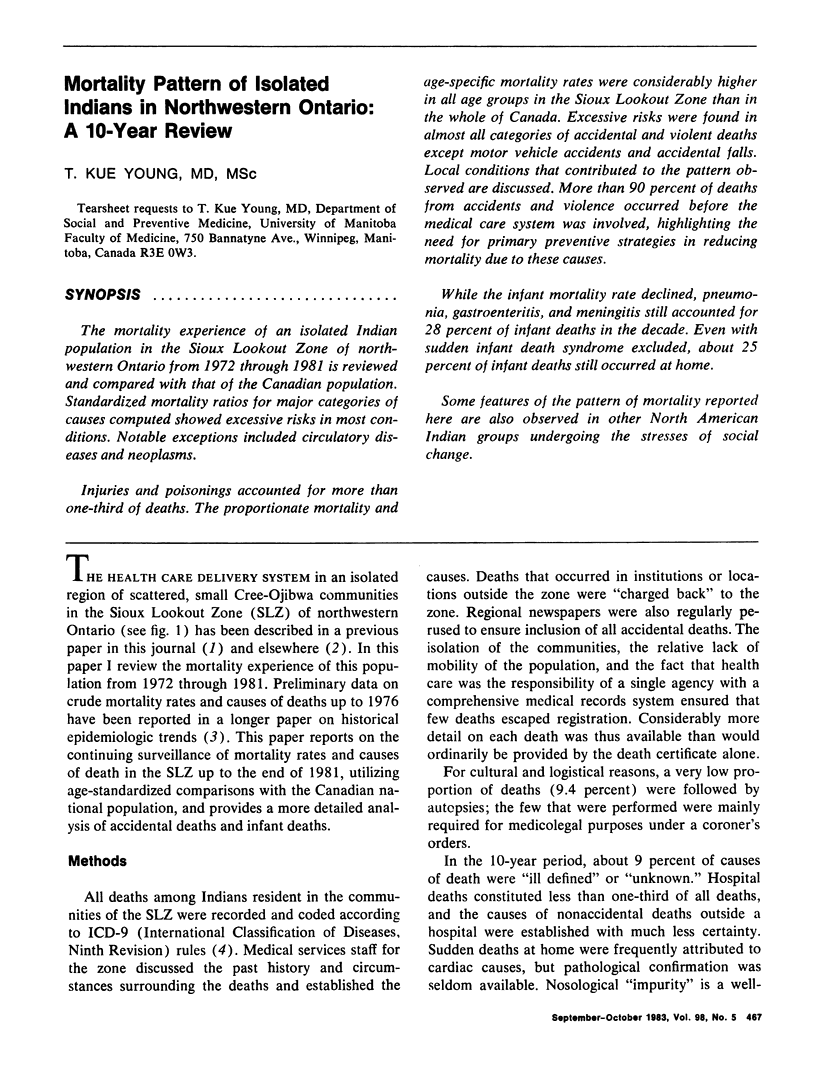
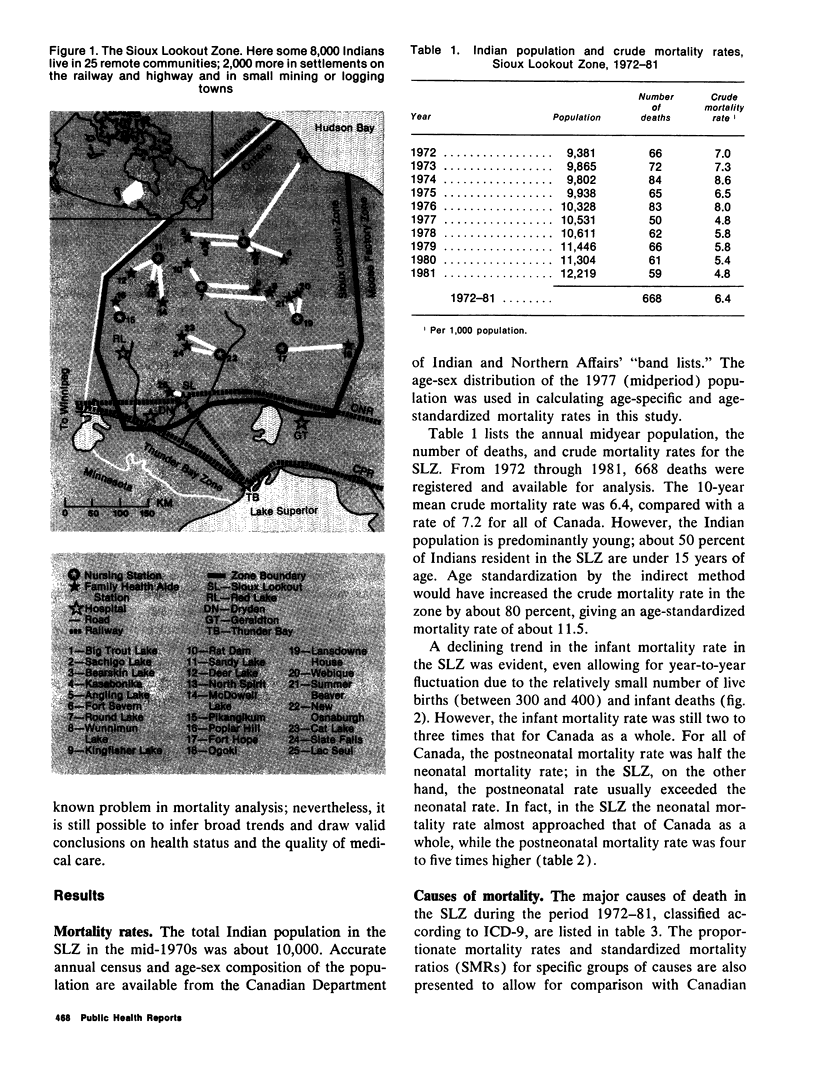
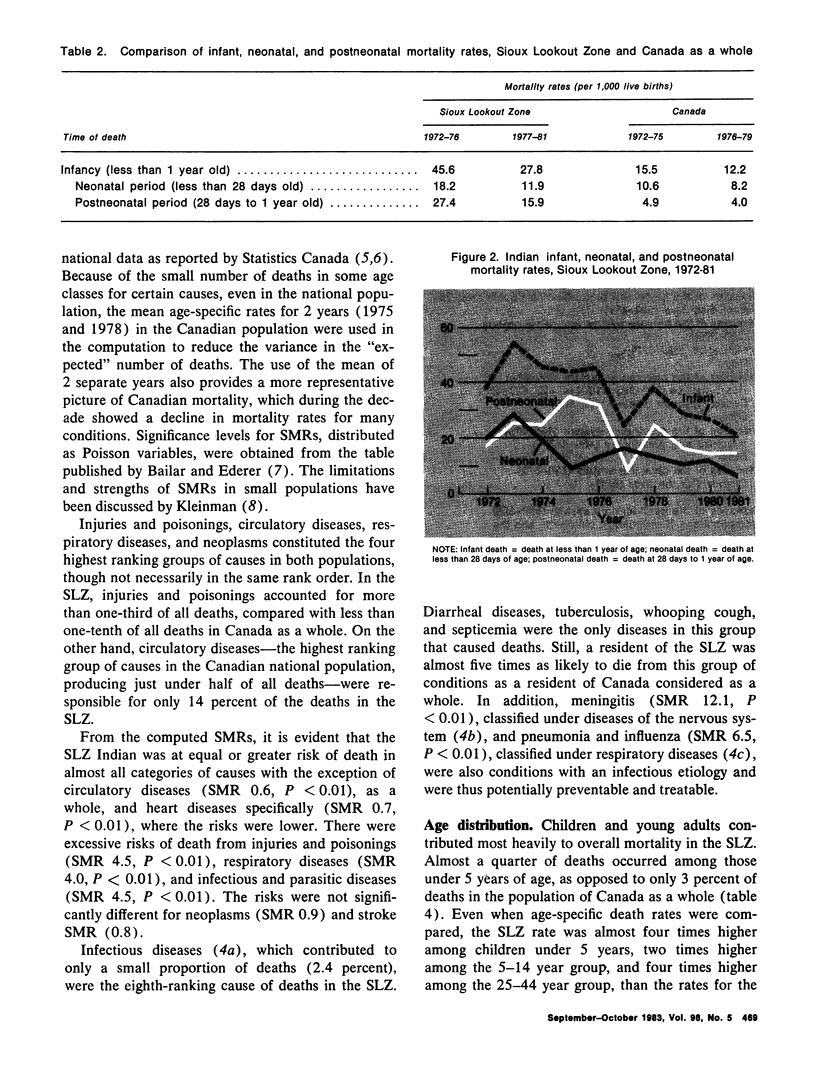
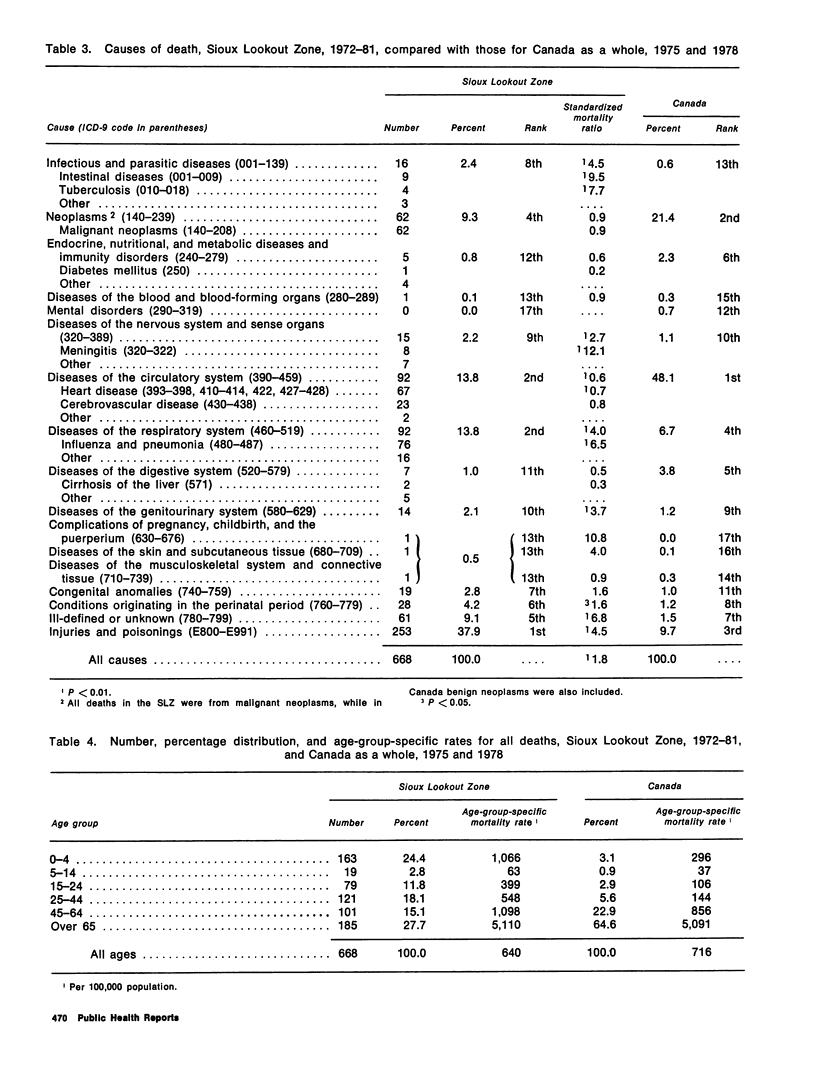
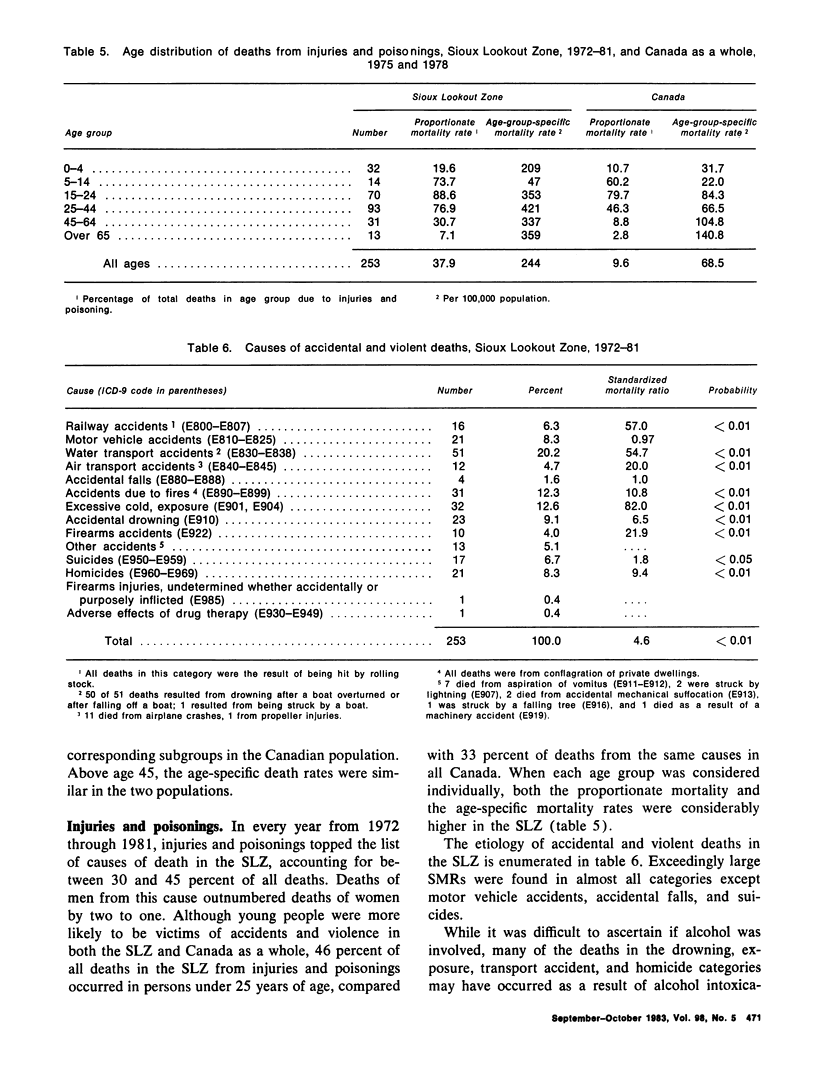
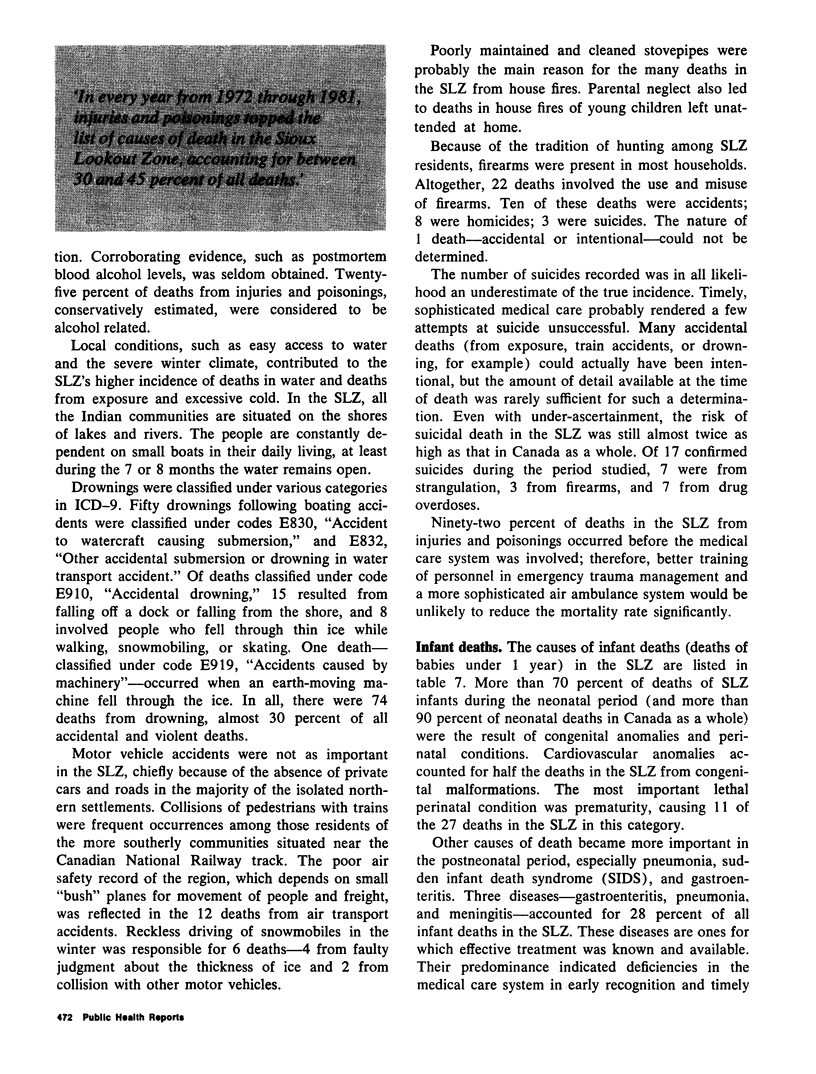
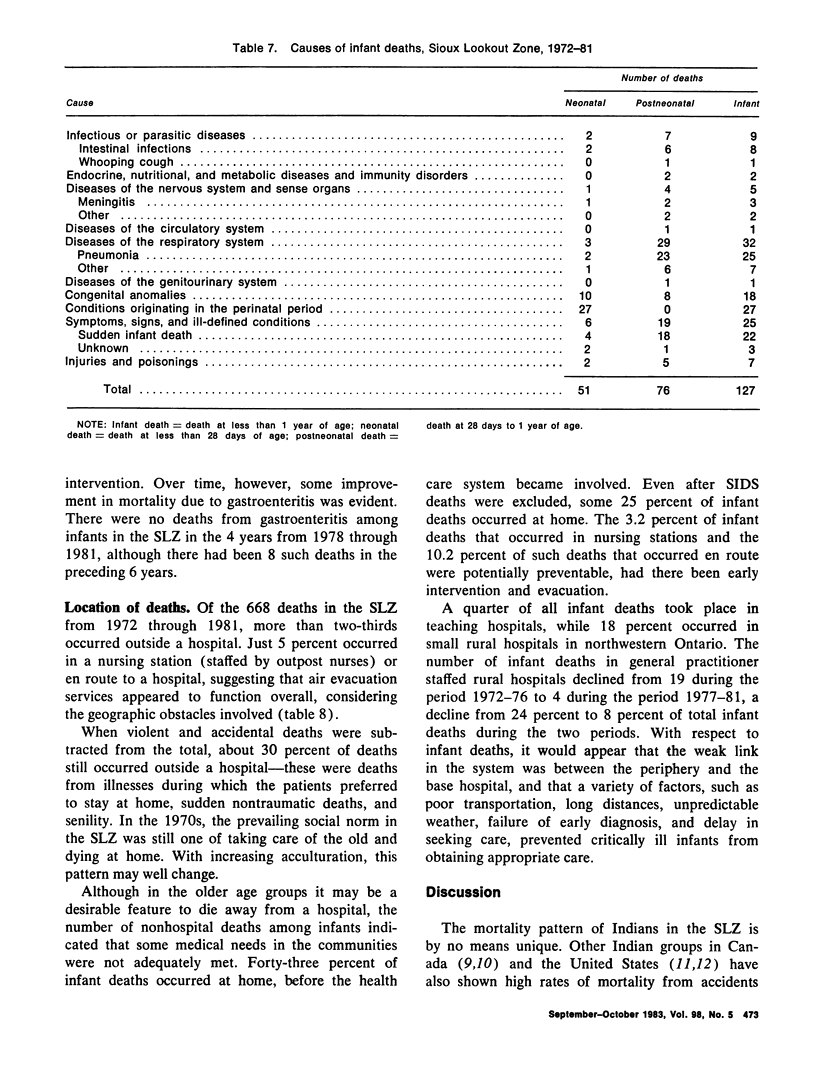
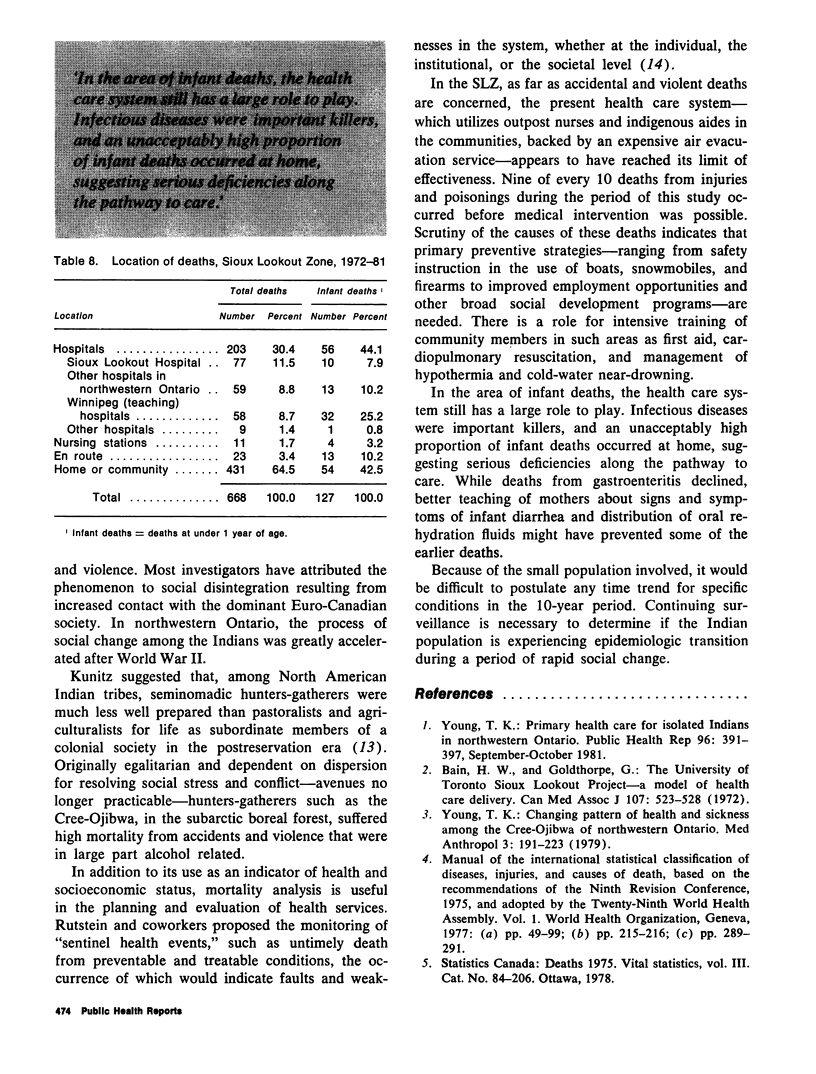
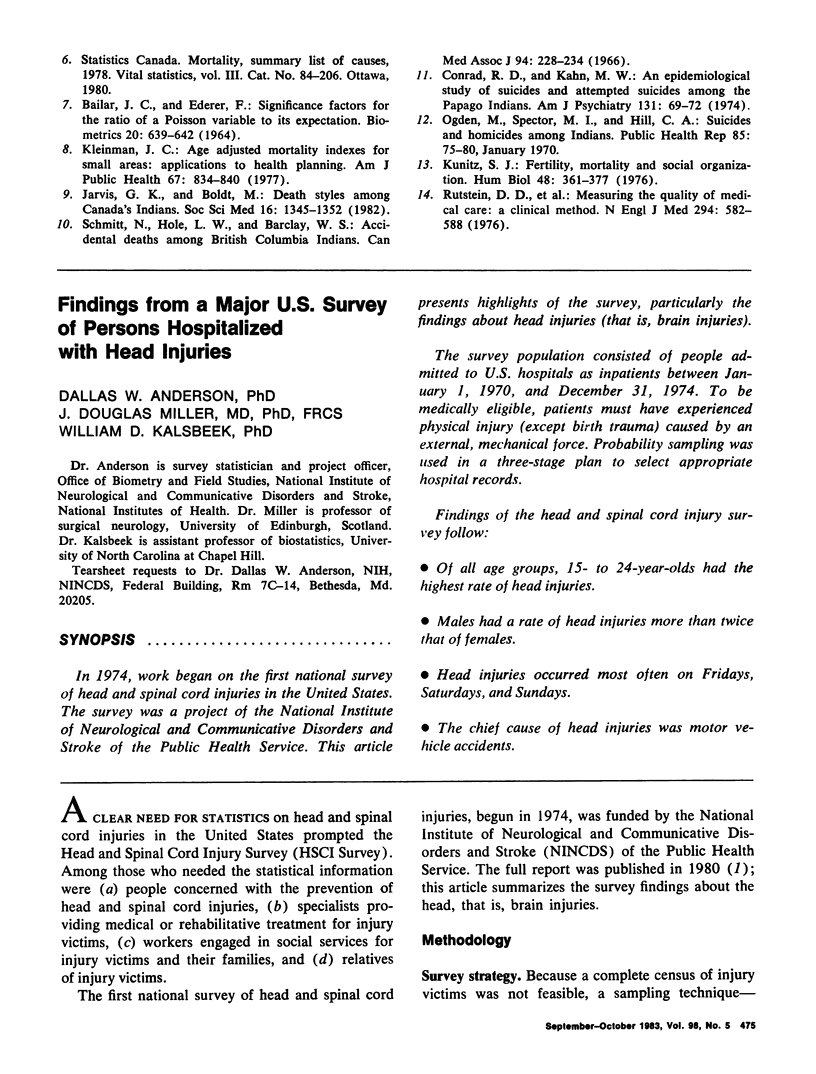
Selected References
These references are in PubMed. This may not be the complete list of references from this article.
- Bain H. W., Goldthorpe G. The University of Toronto "Sioux Lookout Project"--a model of health care delivery. Can Med Assoc J. 1972 Sep 23;107(6):523–passim. [PMC free article] [PubMed] [Google Scholar]
- Conrad R. D., Kahn M. W. An epidemiological study of suicide and attempted suicide among the Papago Indians. Am J Psychiatry. 1974 Jan;131(1):69–72. doi: 10.1176/ajp.131.1.69. [DOI] [PubMed] [Google Scholar]
- Jarvis G. K., Boldt M. Death styles among Canada's Indians. Soc Sci Med. 1982;16(14):1345–1352. doi: 10.1016/0277-9536(82)90030-2. [DOI] [PubMed] [Google Scholar]
- Kleinman J. C. Age-adjusted mortality indexes for small areas: applications to health planning. Am J Public Health. 1977 Sep;67(9):834–840. doi: 10.2105/ajph.67.9.834. [DOI] [PMC free article] [PubMed] [Google Scholar]
- Kunitz S. J. Fertility, mortality, and social organization. Hum Biol. 1976 May;48(2):361–377. [PubMed] [Google Scholar]
- Ogden M., Spector M. I., Hill C. A., Jr Suicides and homicides among Indians. Public Health Rep. 1970 Jan;85(1):75–80. [PMC free article] [PubMed] [Google Scholar]
- Rutstein D. D., Berenberg W., Chalmers T. C., Child C. G., 3rd, Fishman A. P., Perrin E. B. Measuring the quality of medical care. A clinical method. N Engl J Med. 1976 Mar 11;294(11):582–588. doi: 10.1056/NEJM197603112941104. [DOI] [PubMed] [Google Scholar]
- Schmitt N., Hole L. W., Barclay W. S. Accidental deaths among British Columbia Indians. Can Med Assoc J. 1966 Jan 29;94(5):228–234. [PMC free article] [PubMed] [Google Scholar]
- Young T. K. Primary health care for isolated Indians in Northwestern Ontario. Public Health Rep. 1981 Sep-Oct;96(5):391–397. [PMC free article] [PubMed] [Google Scholar]


